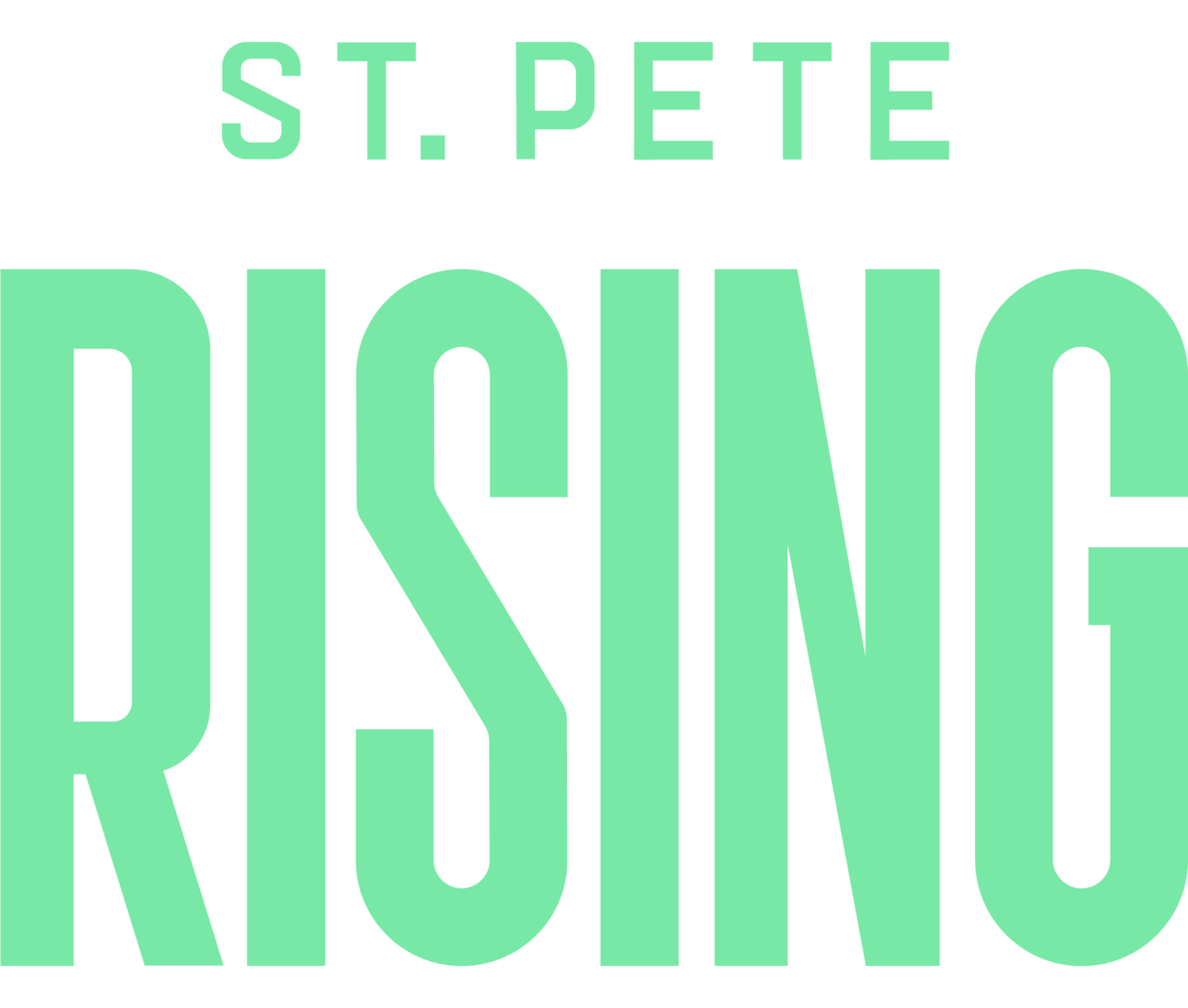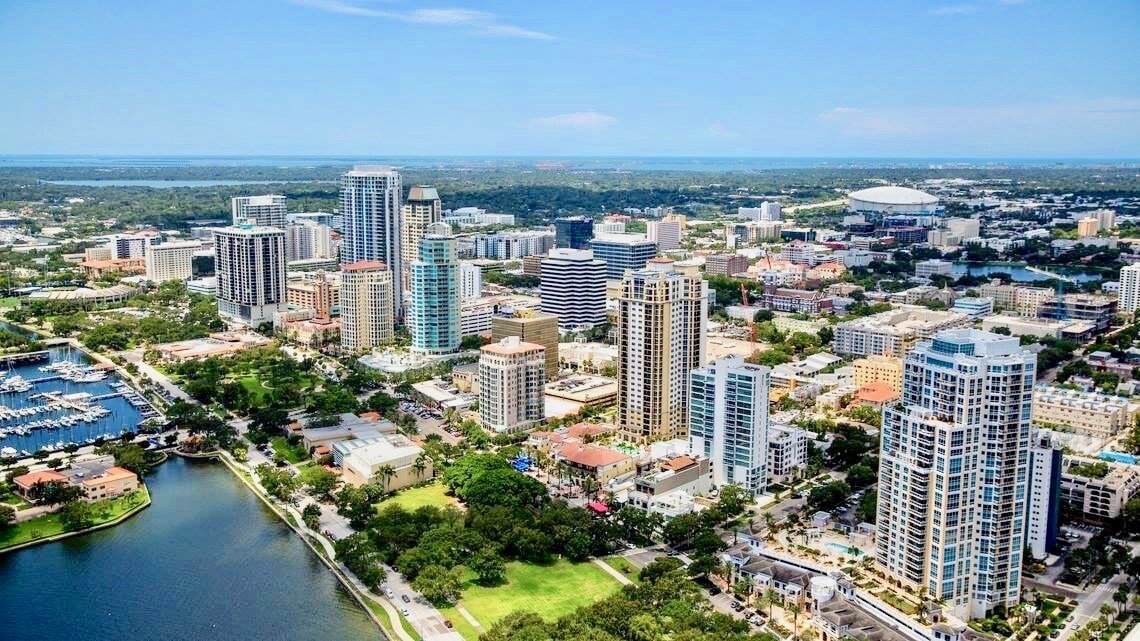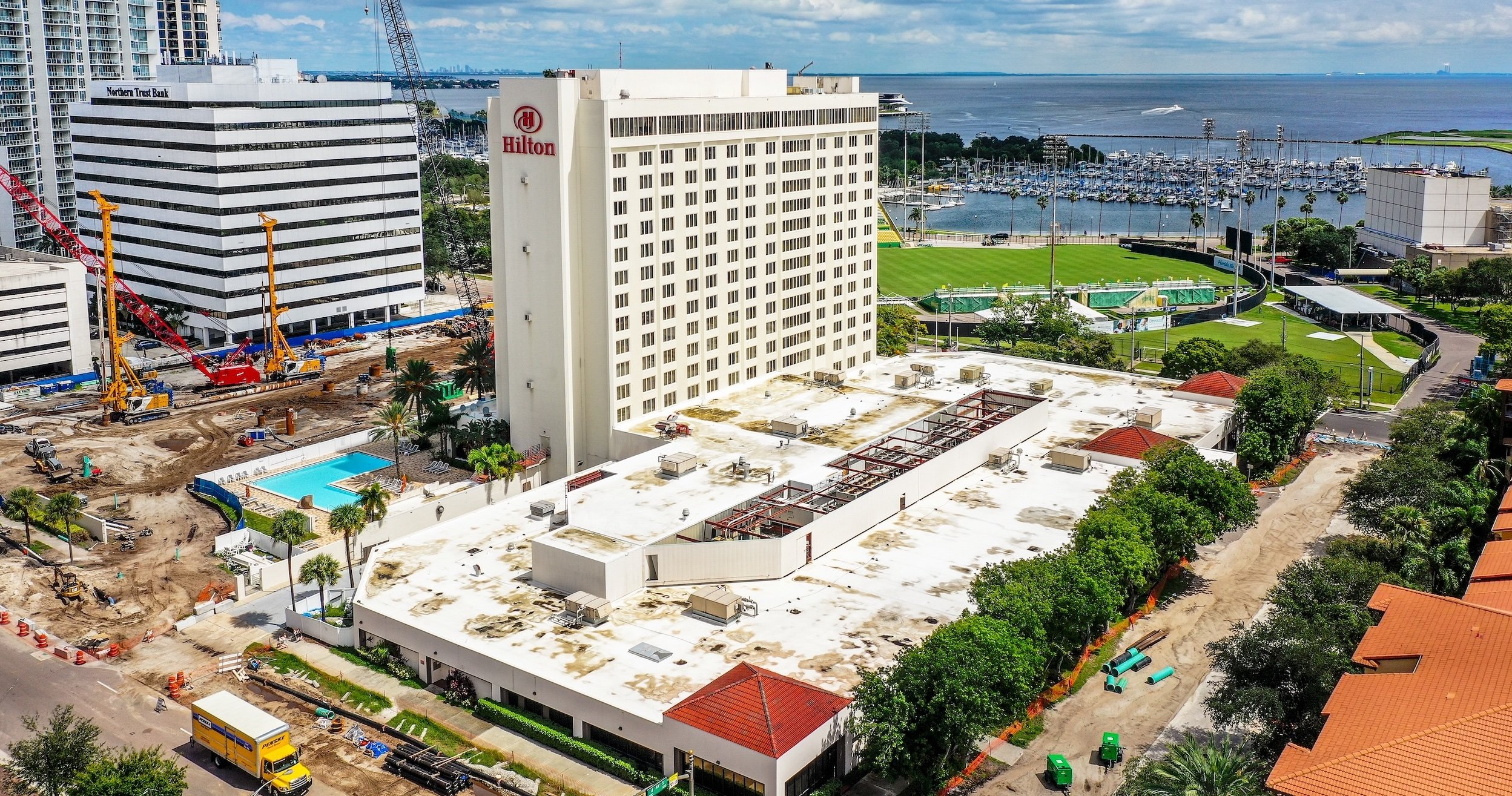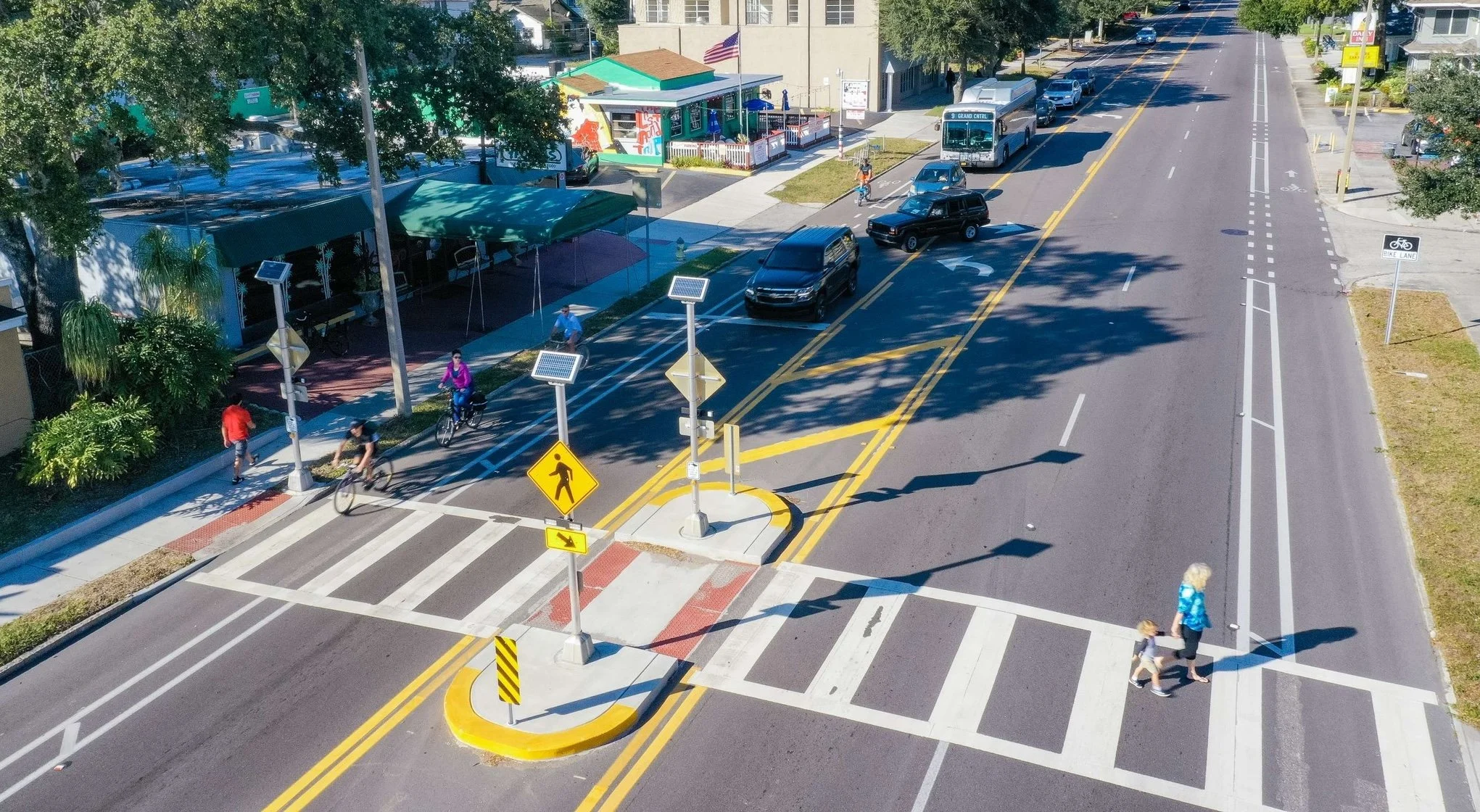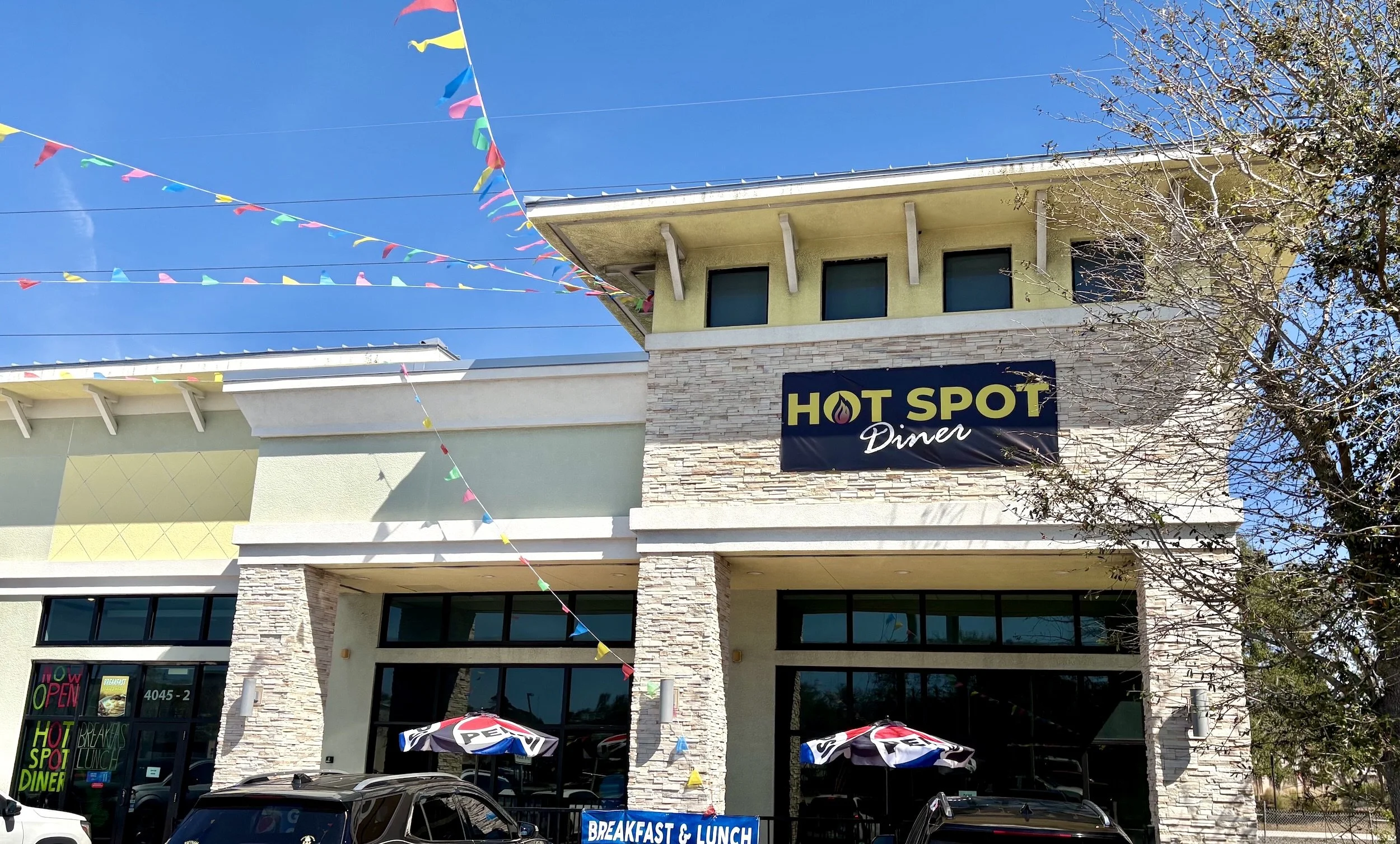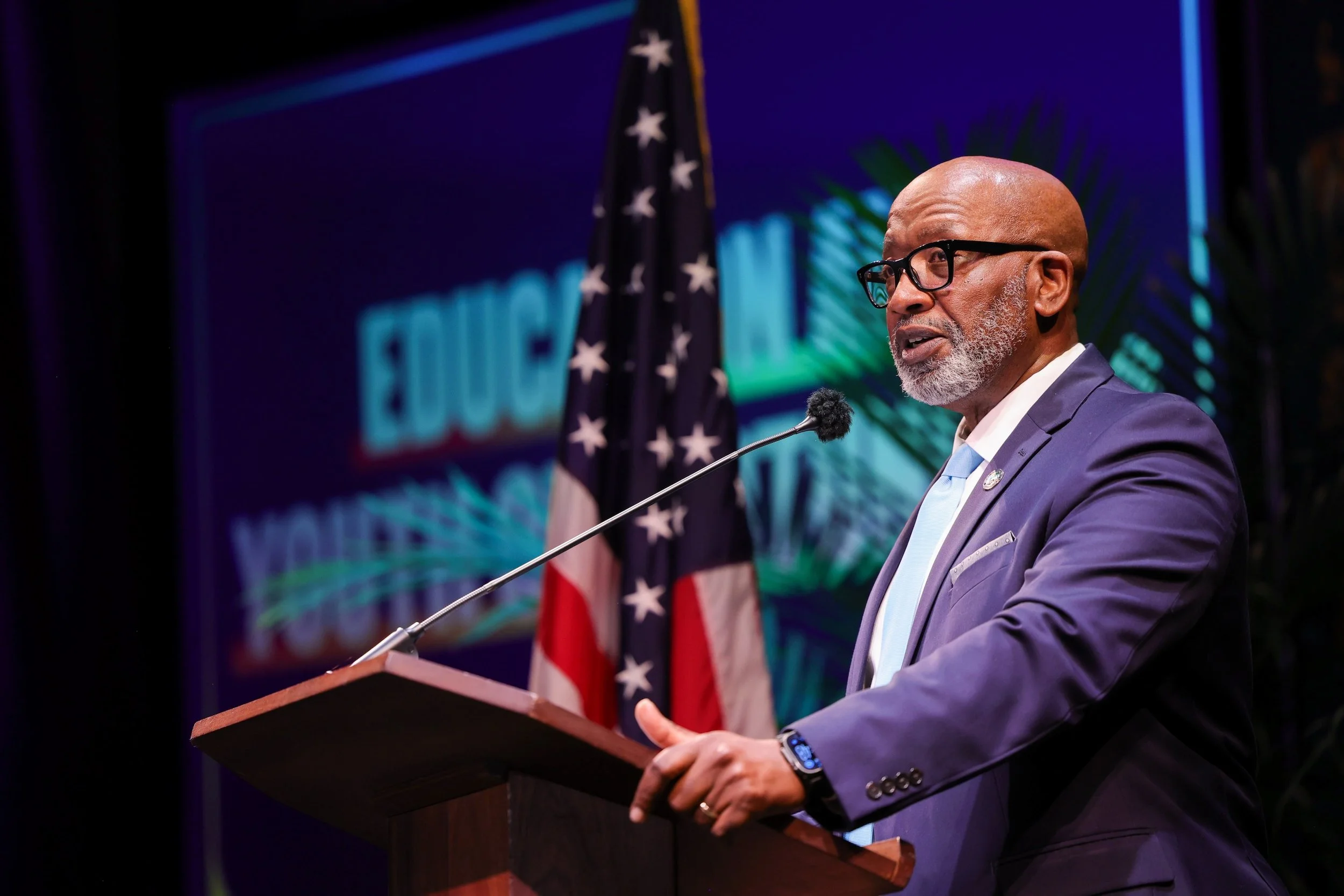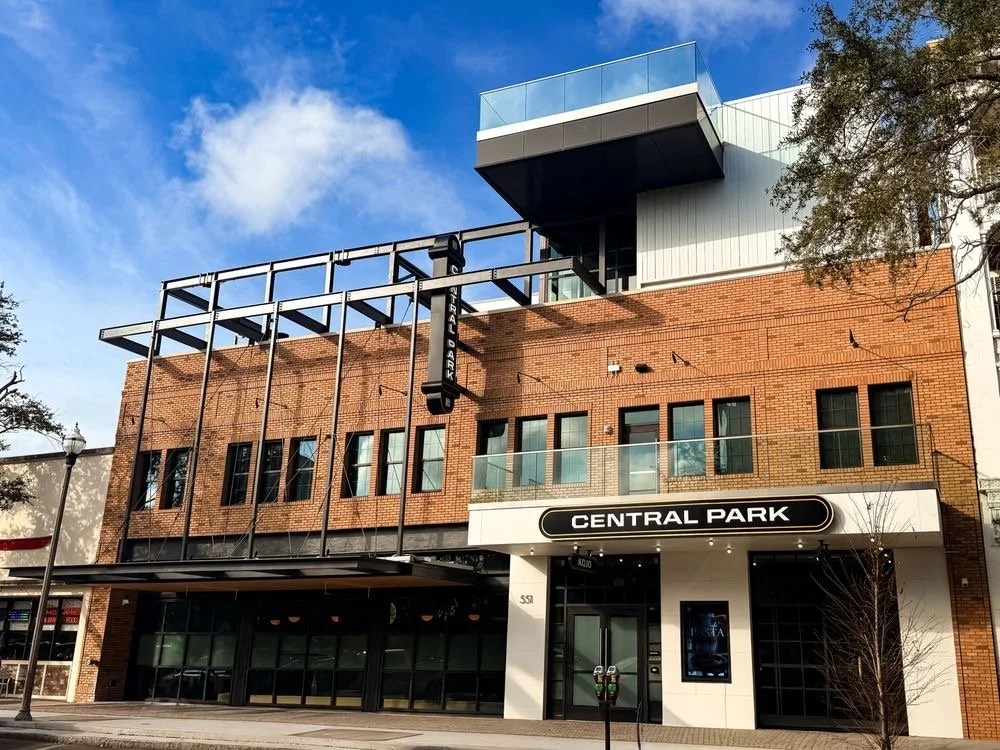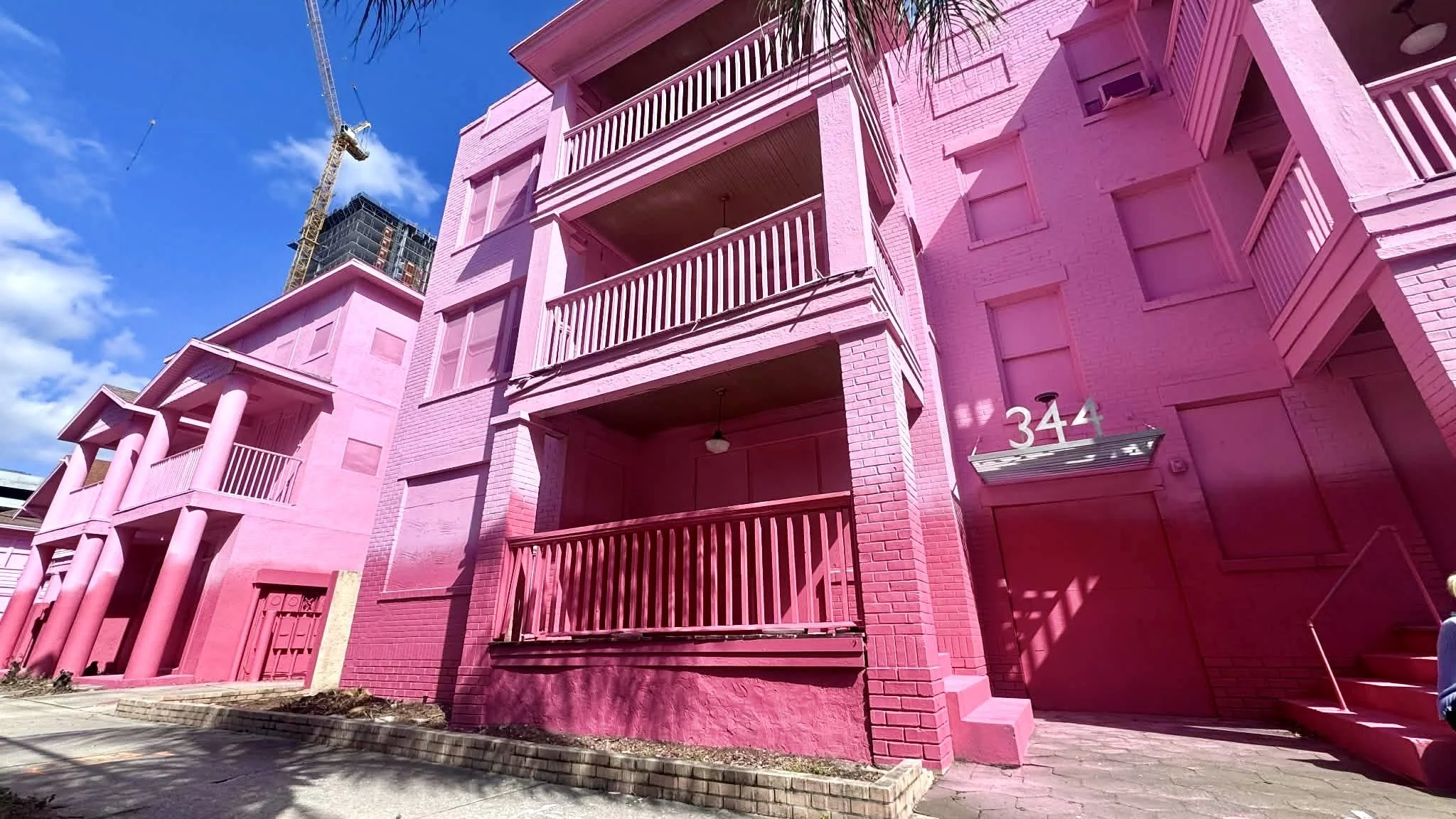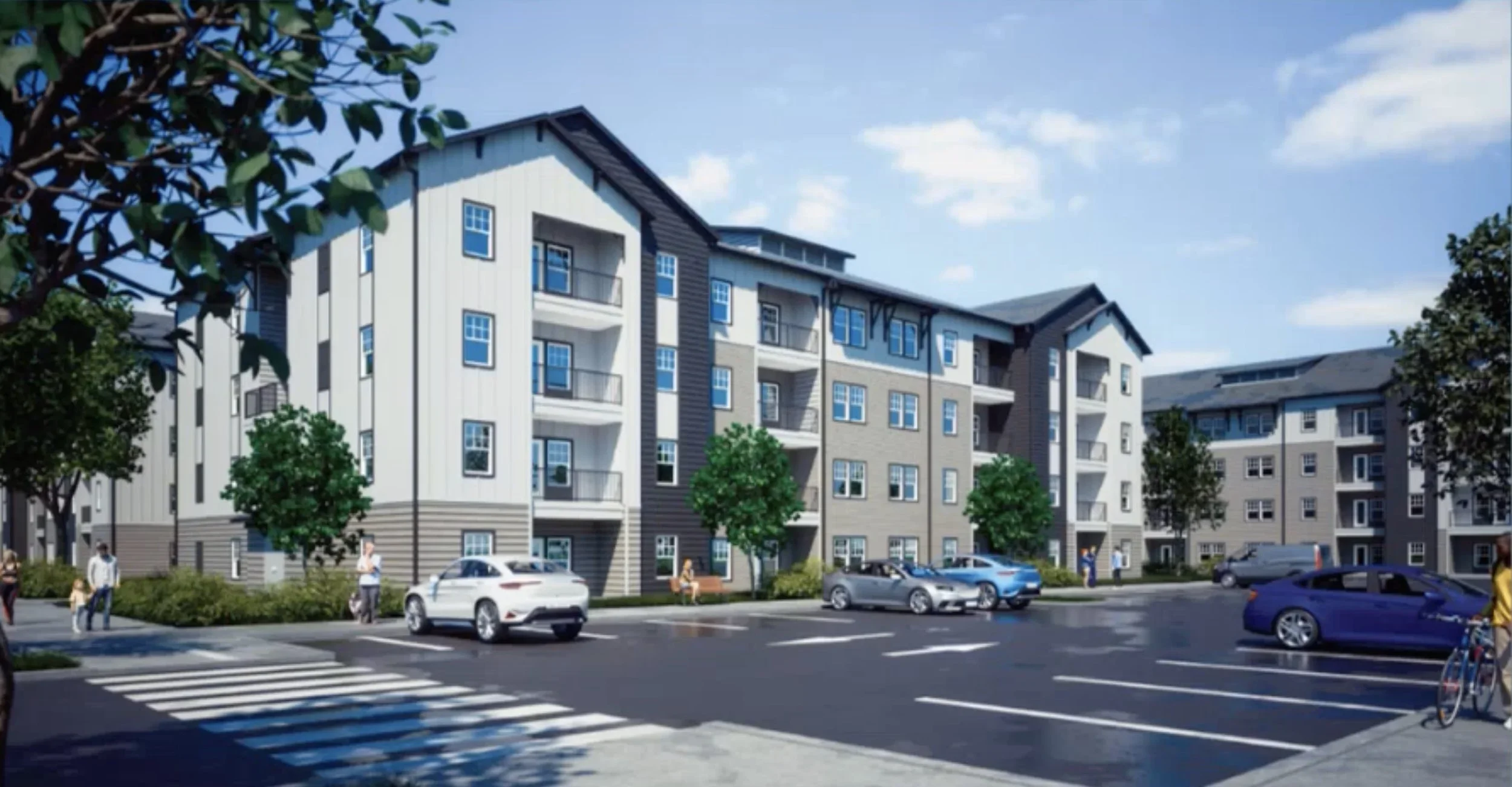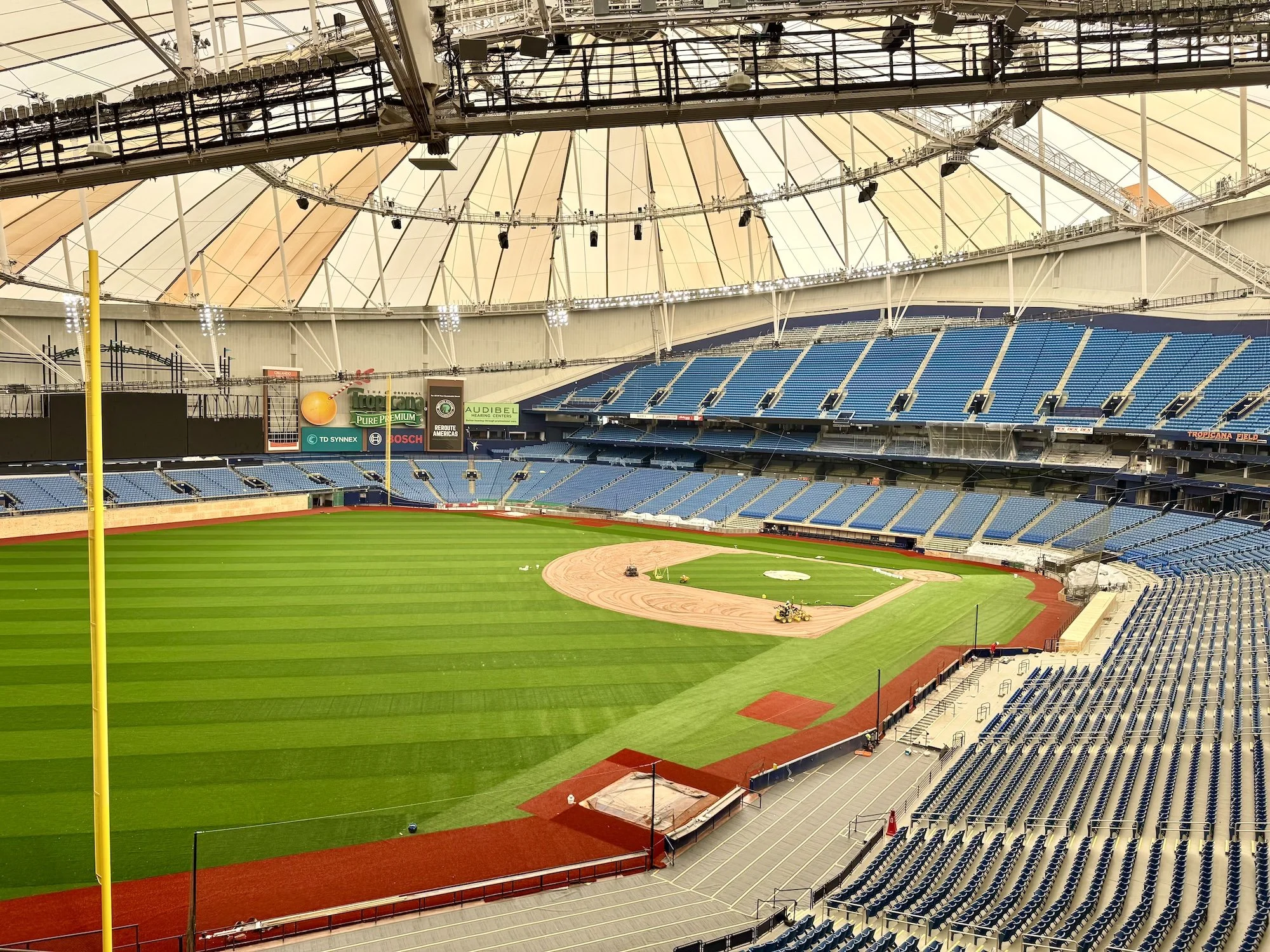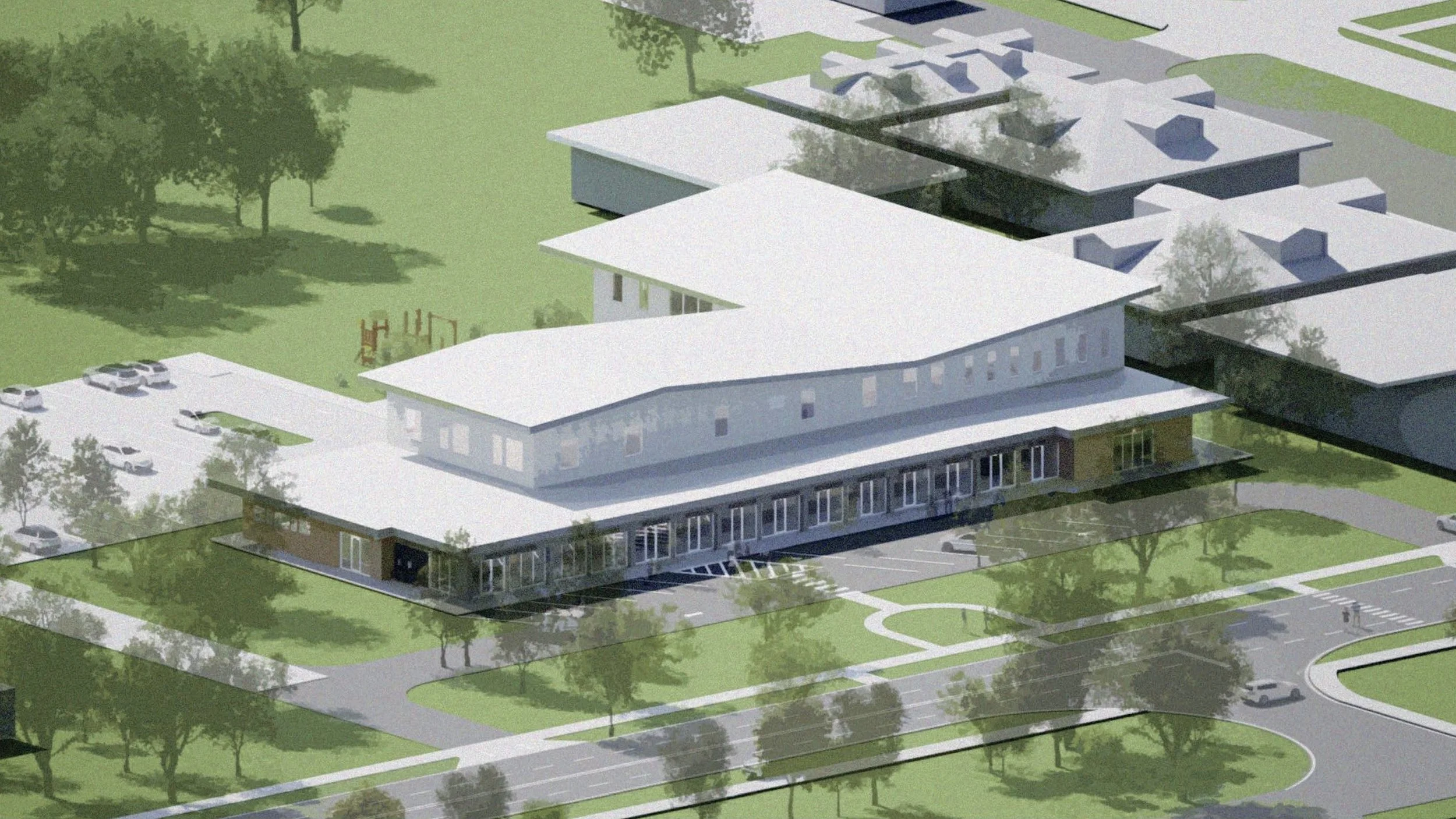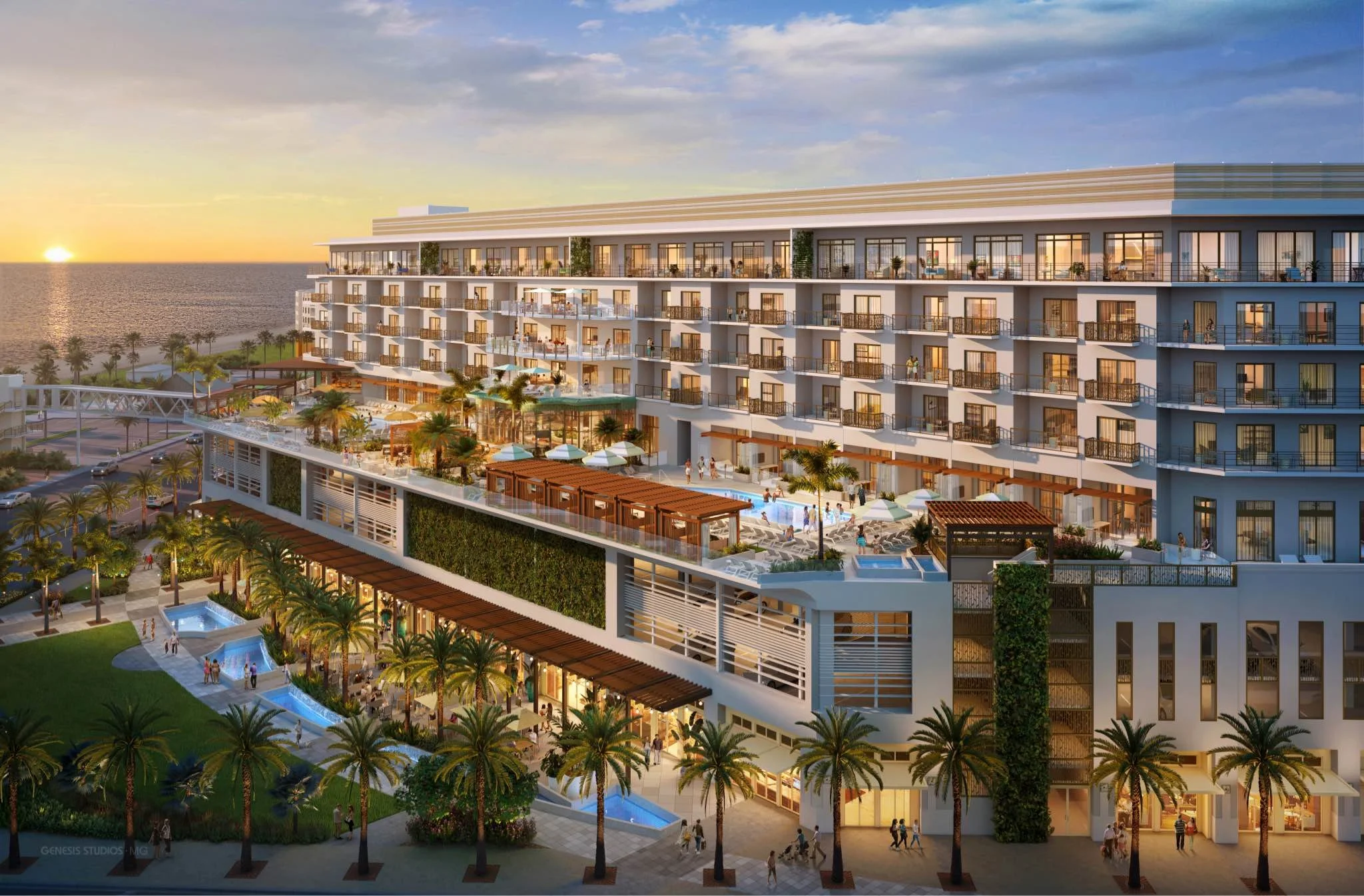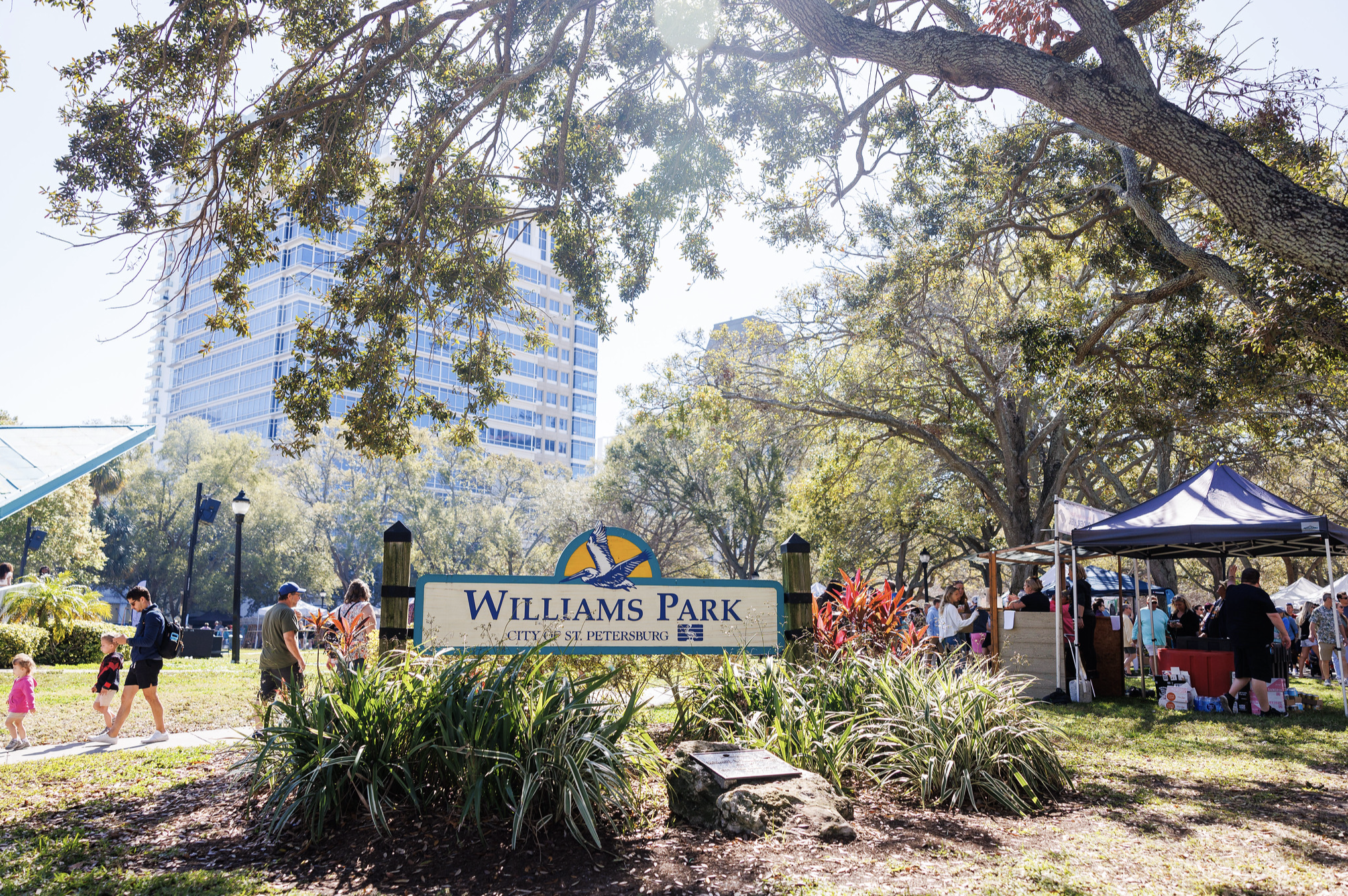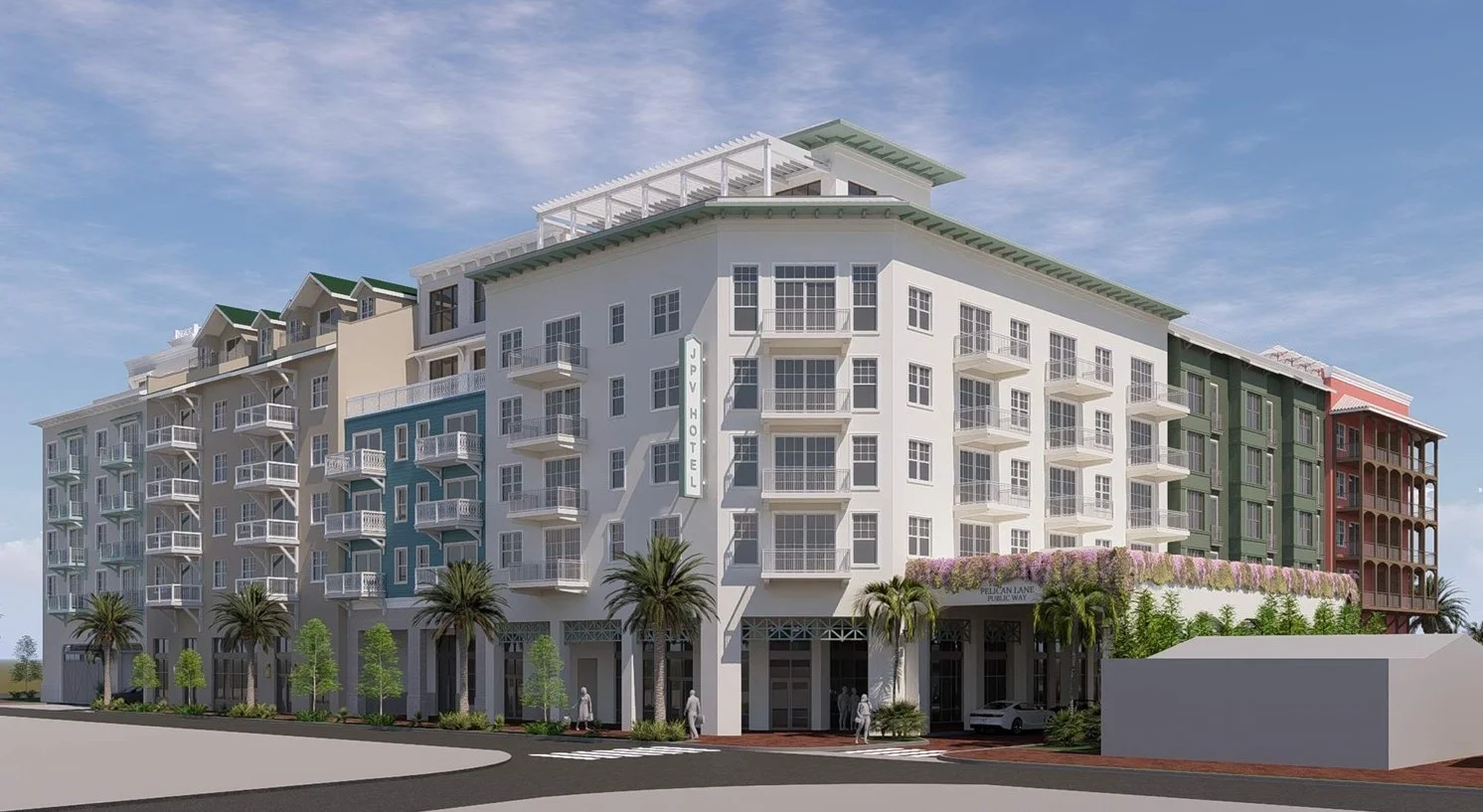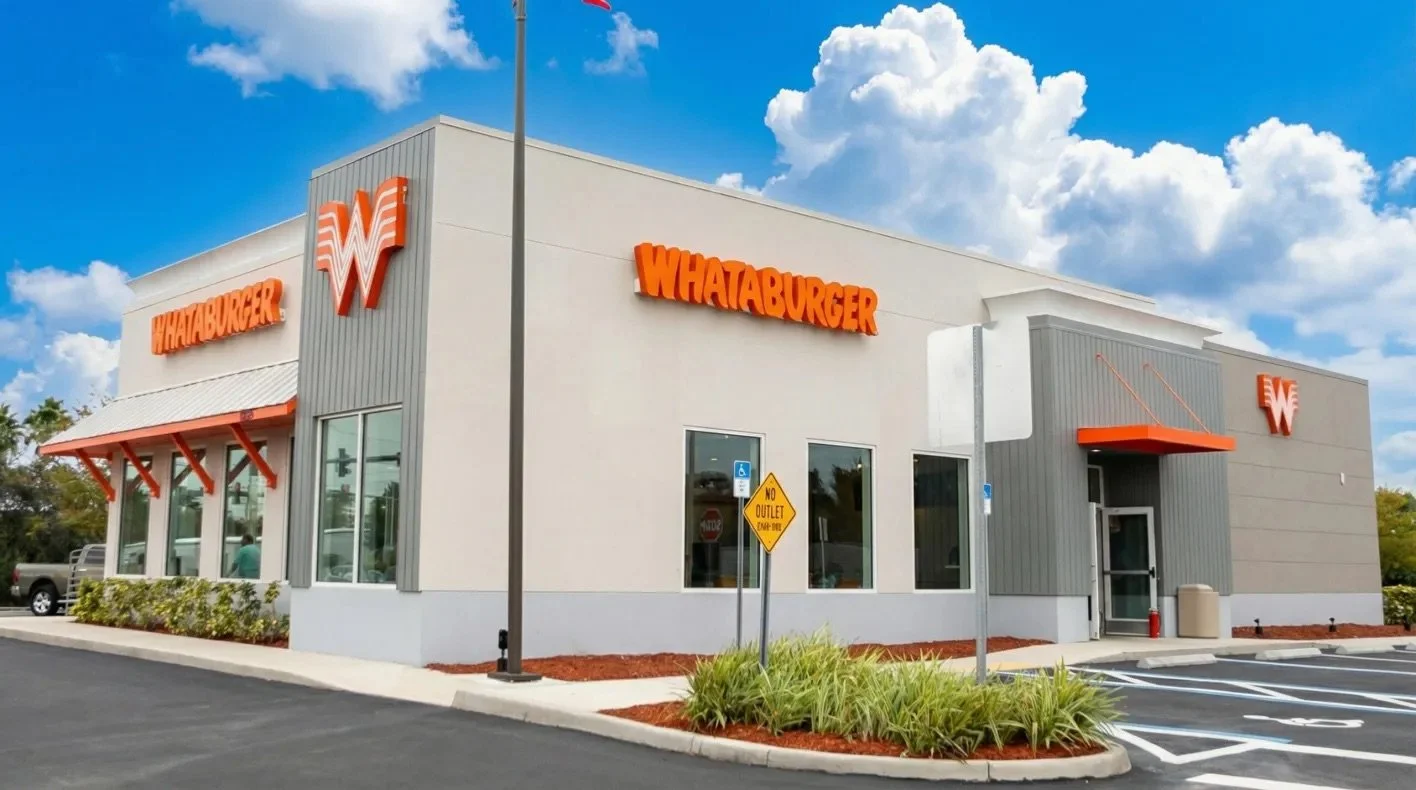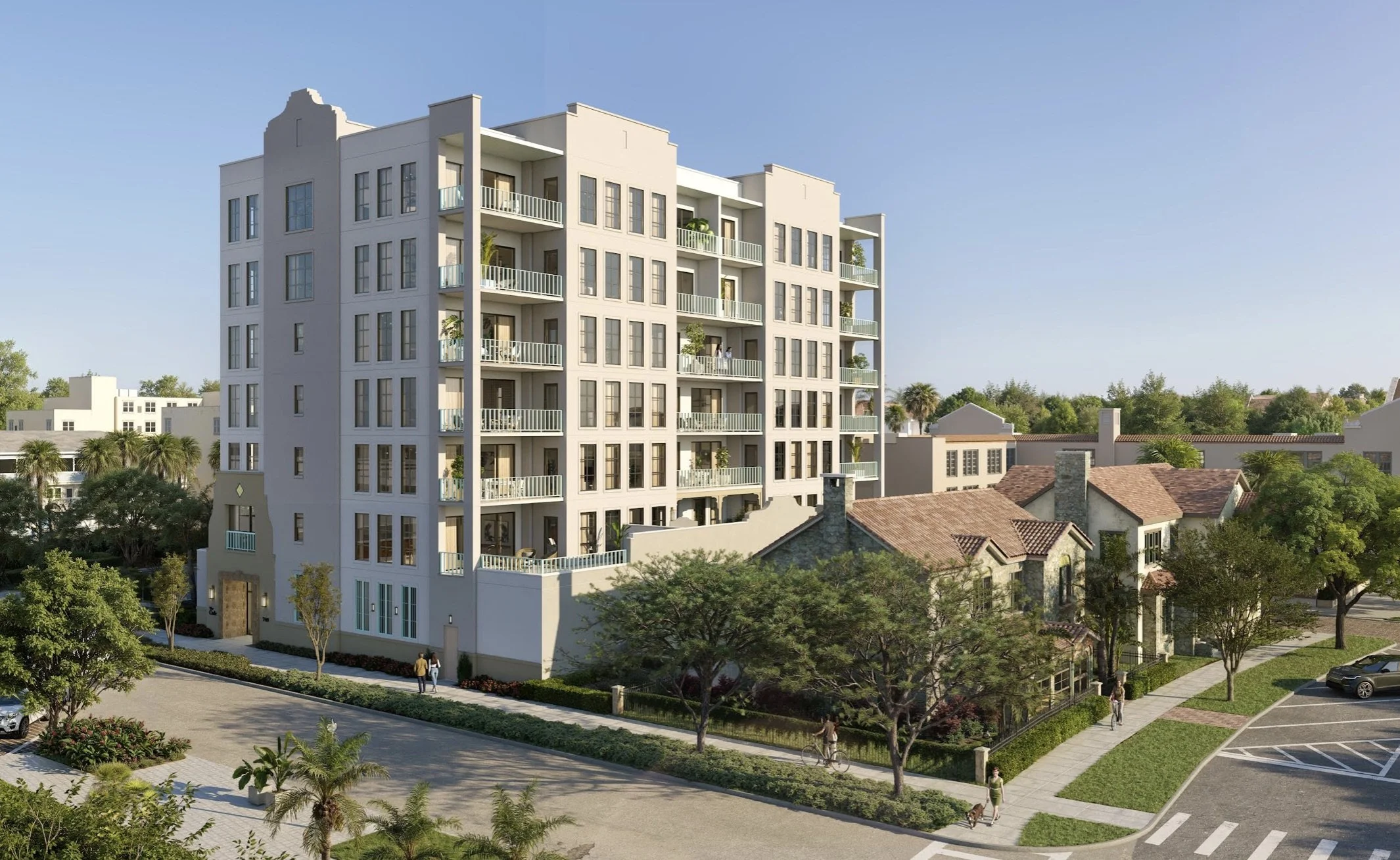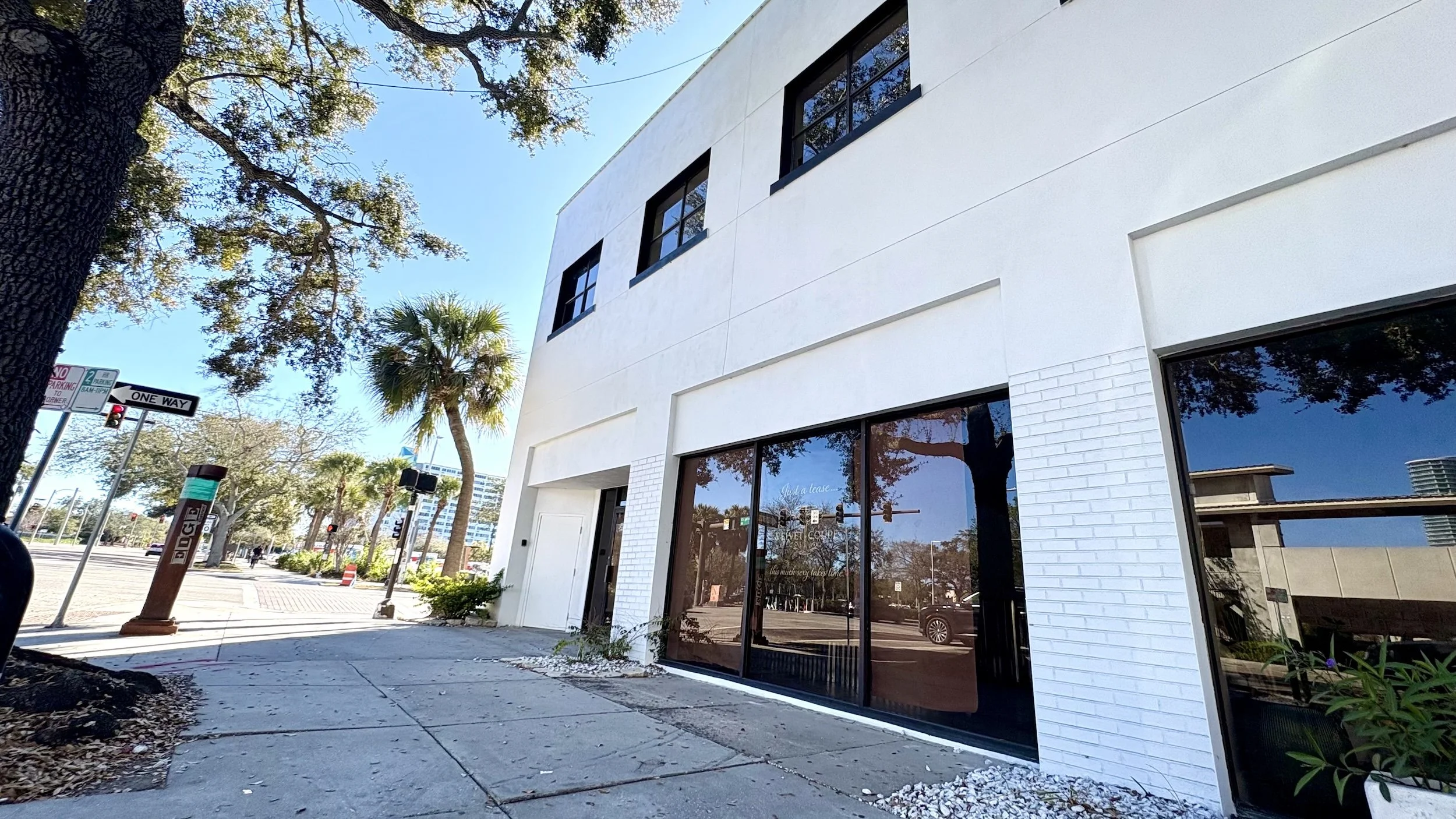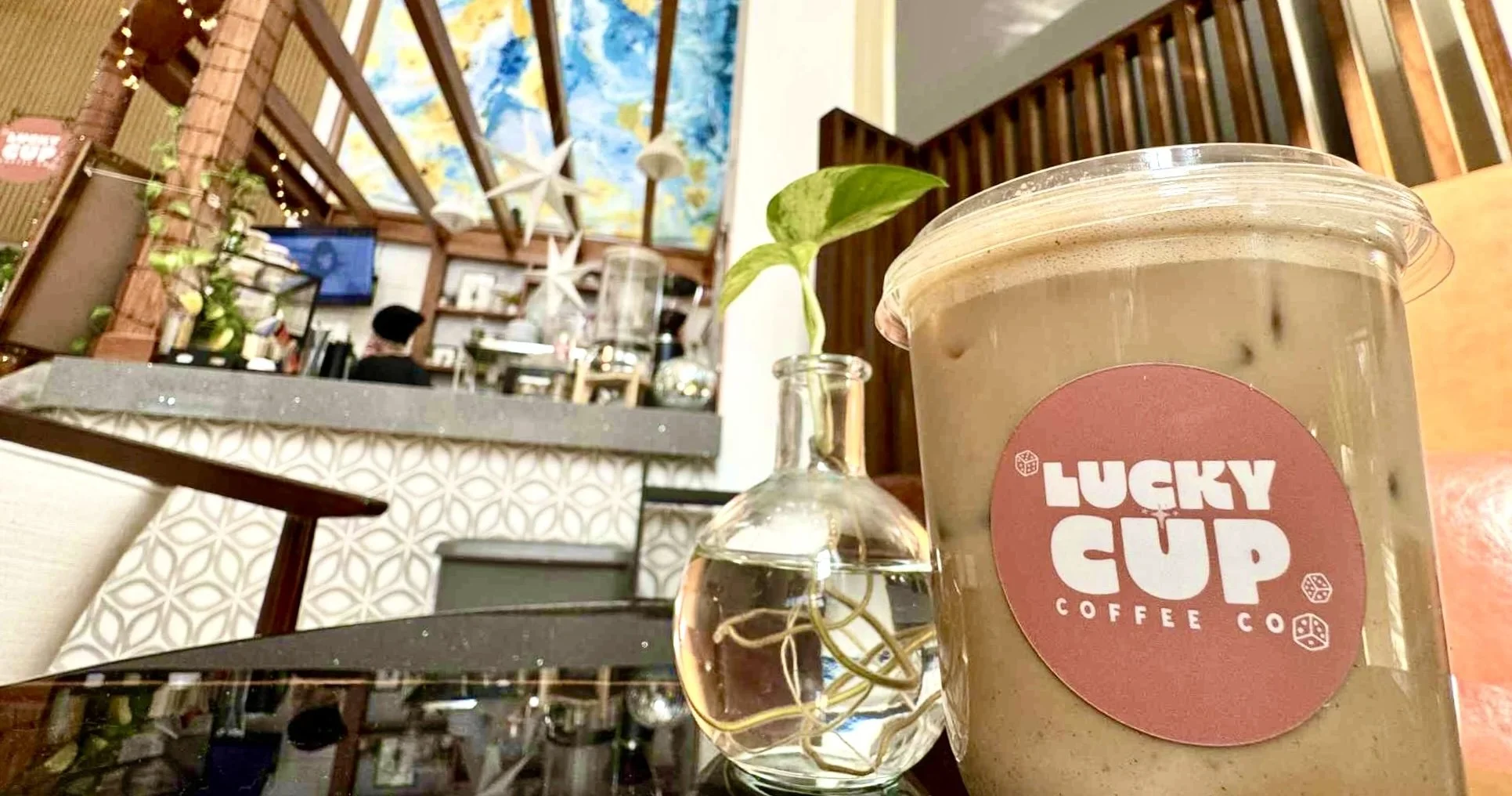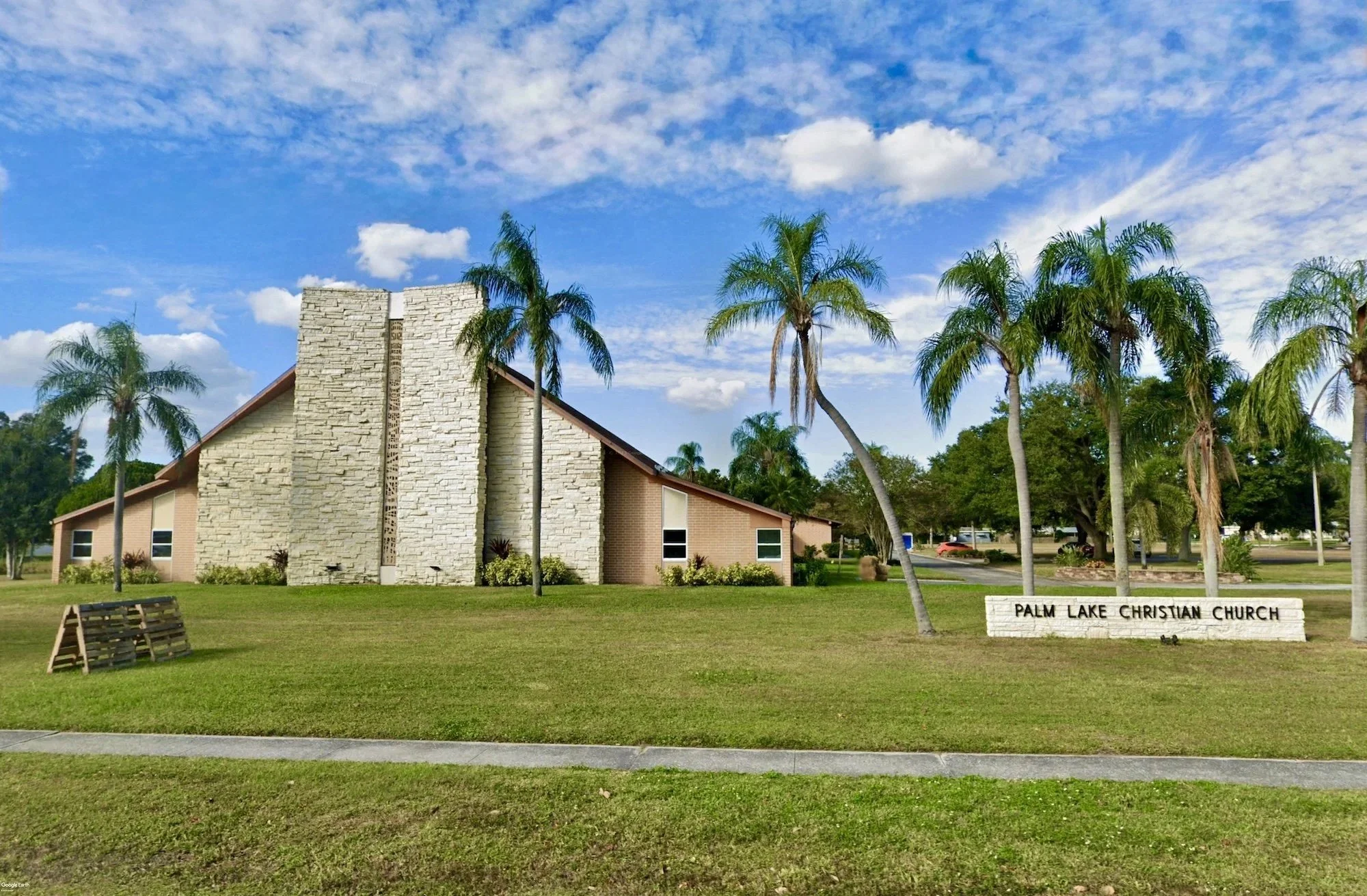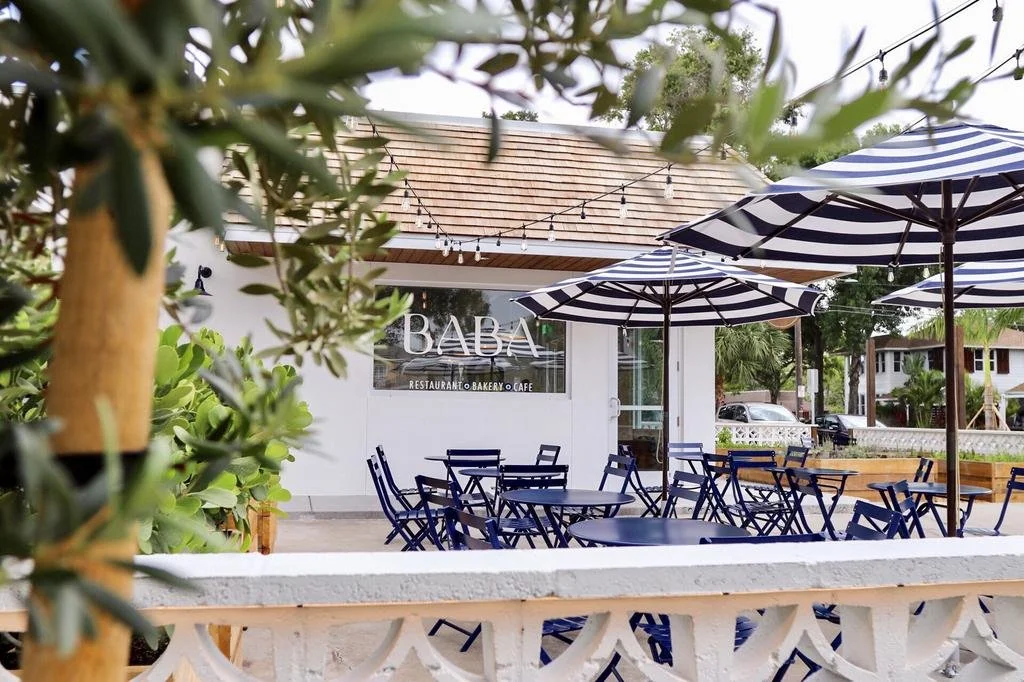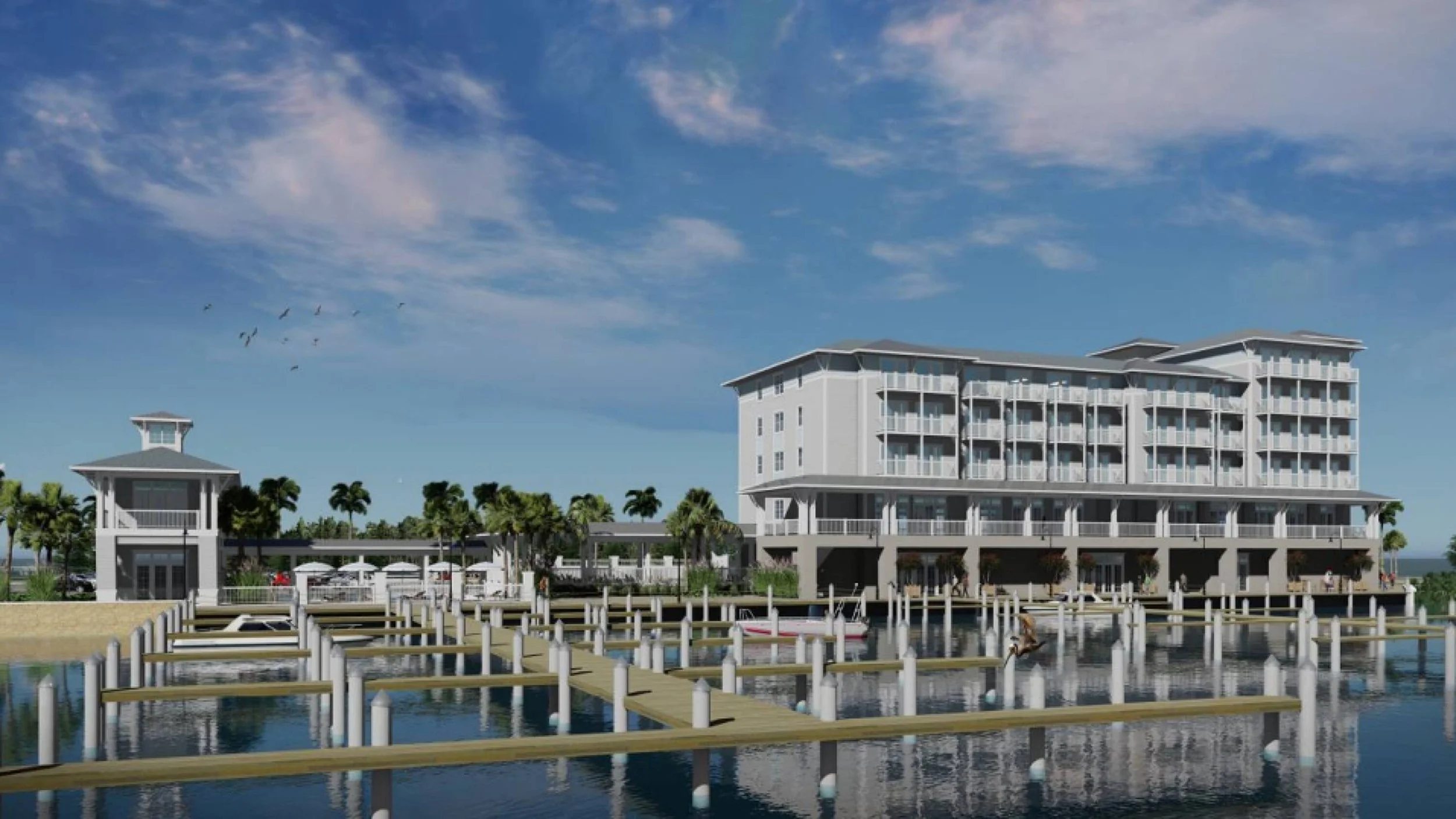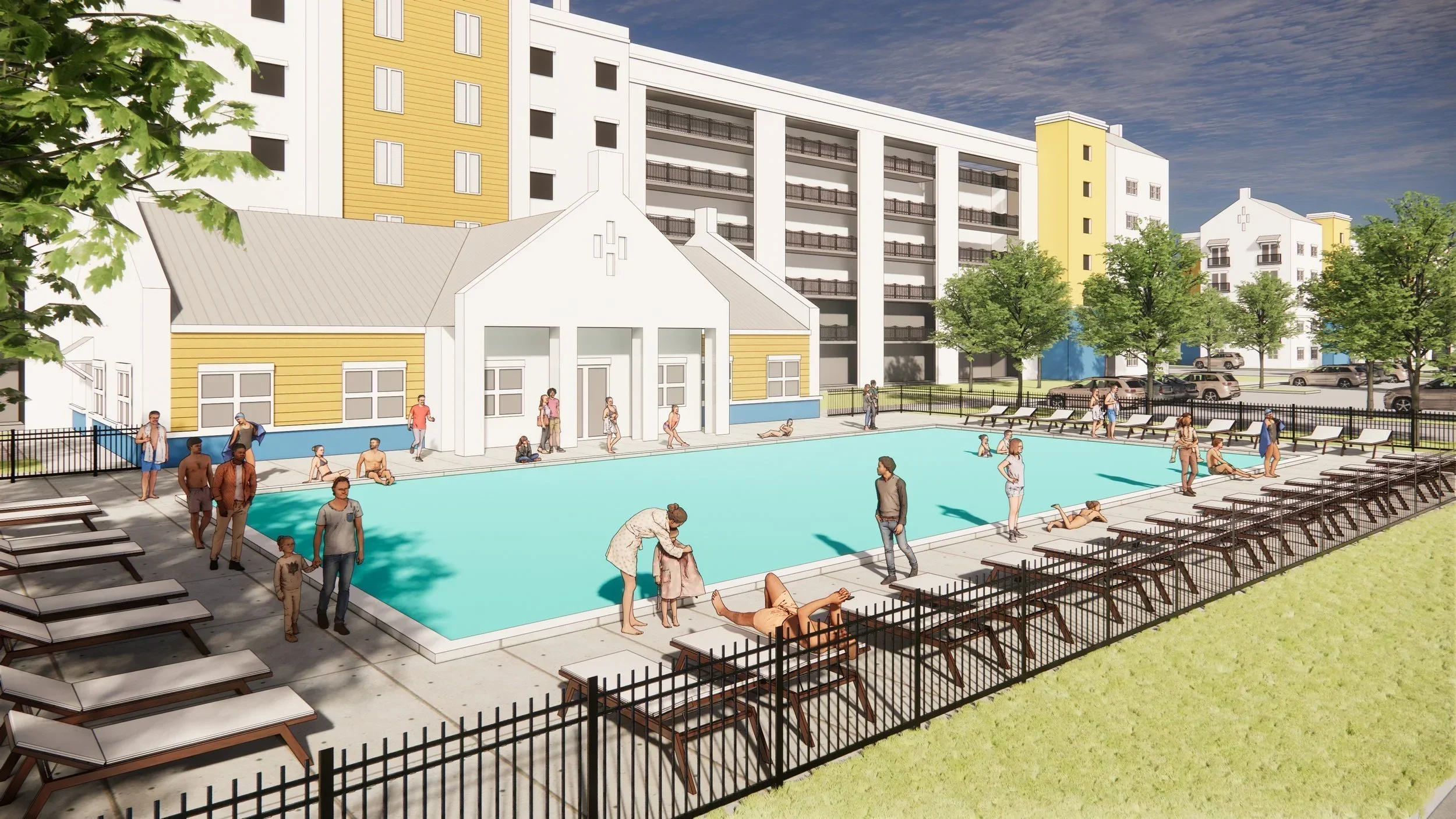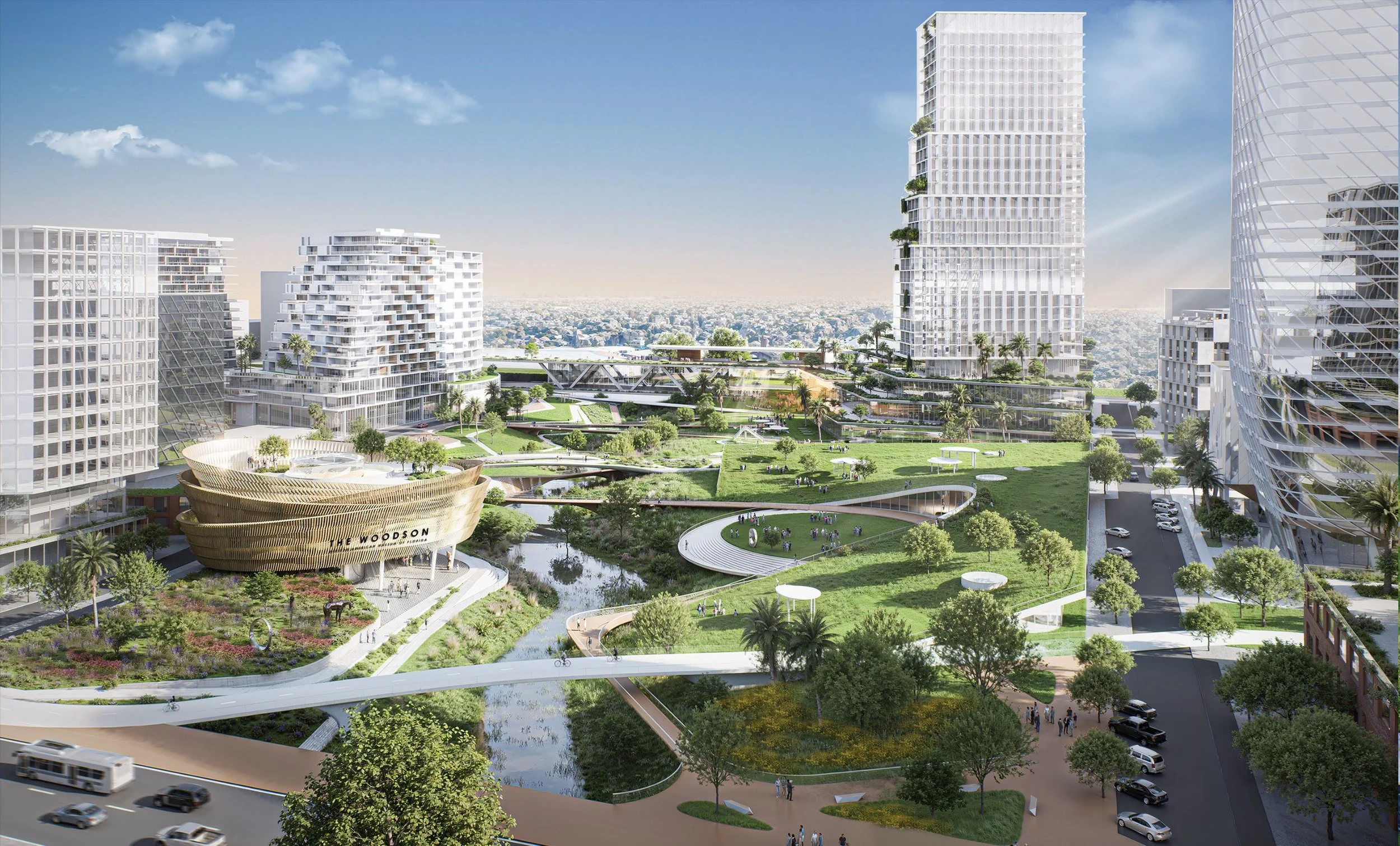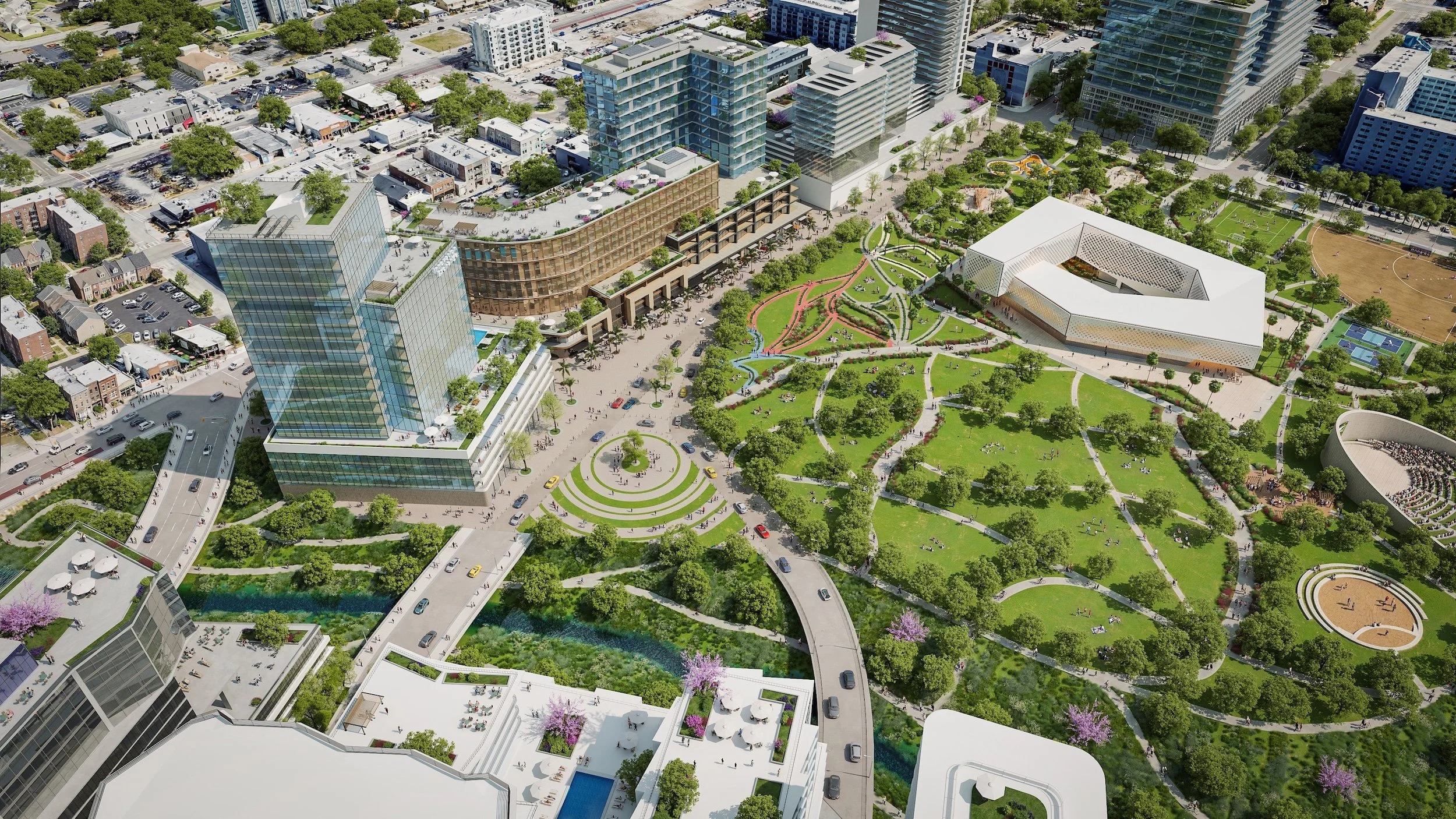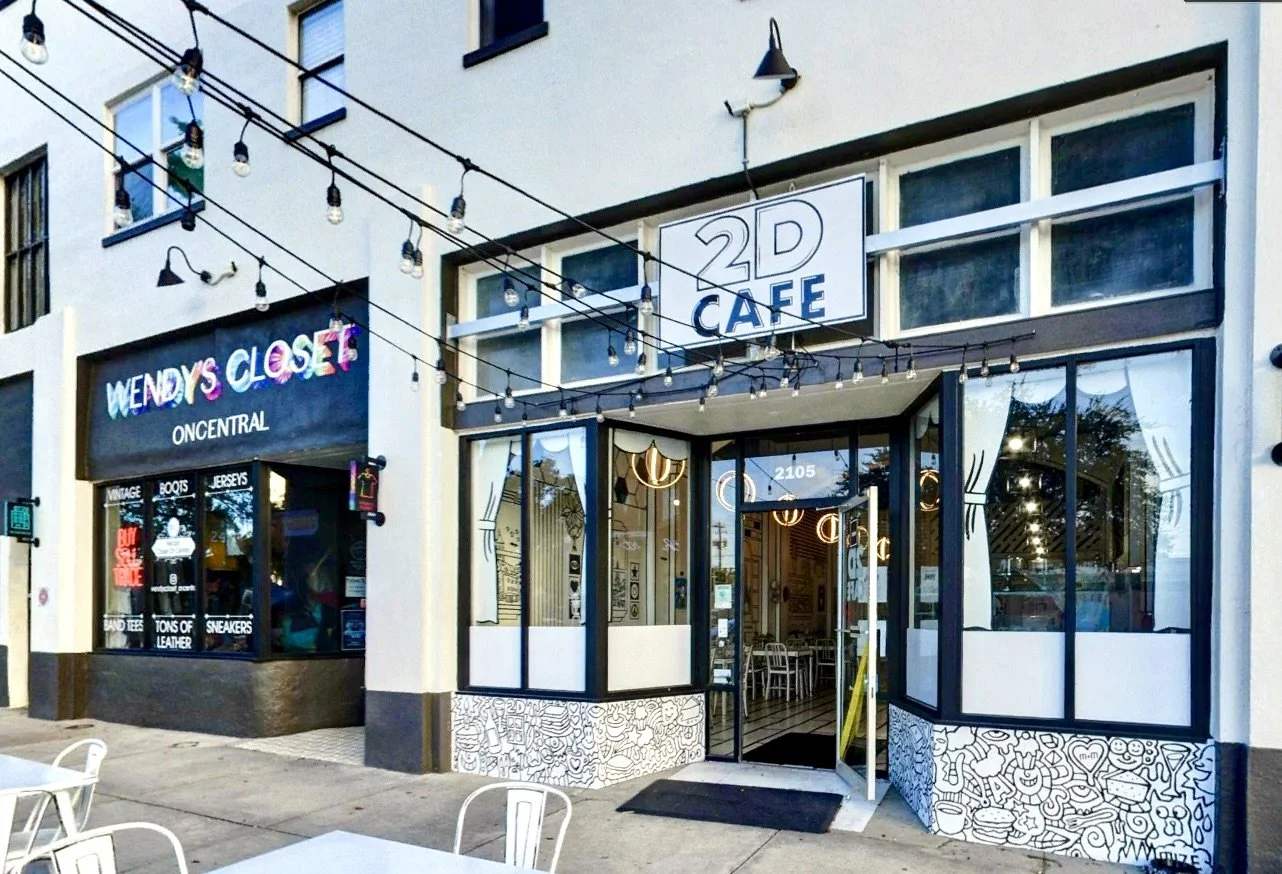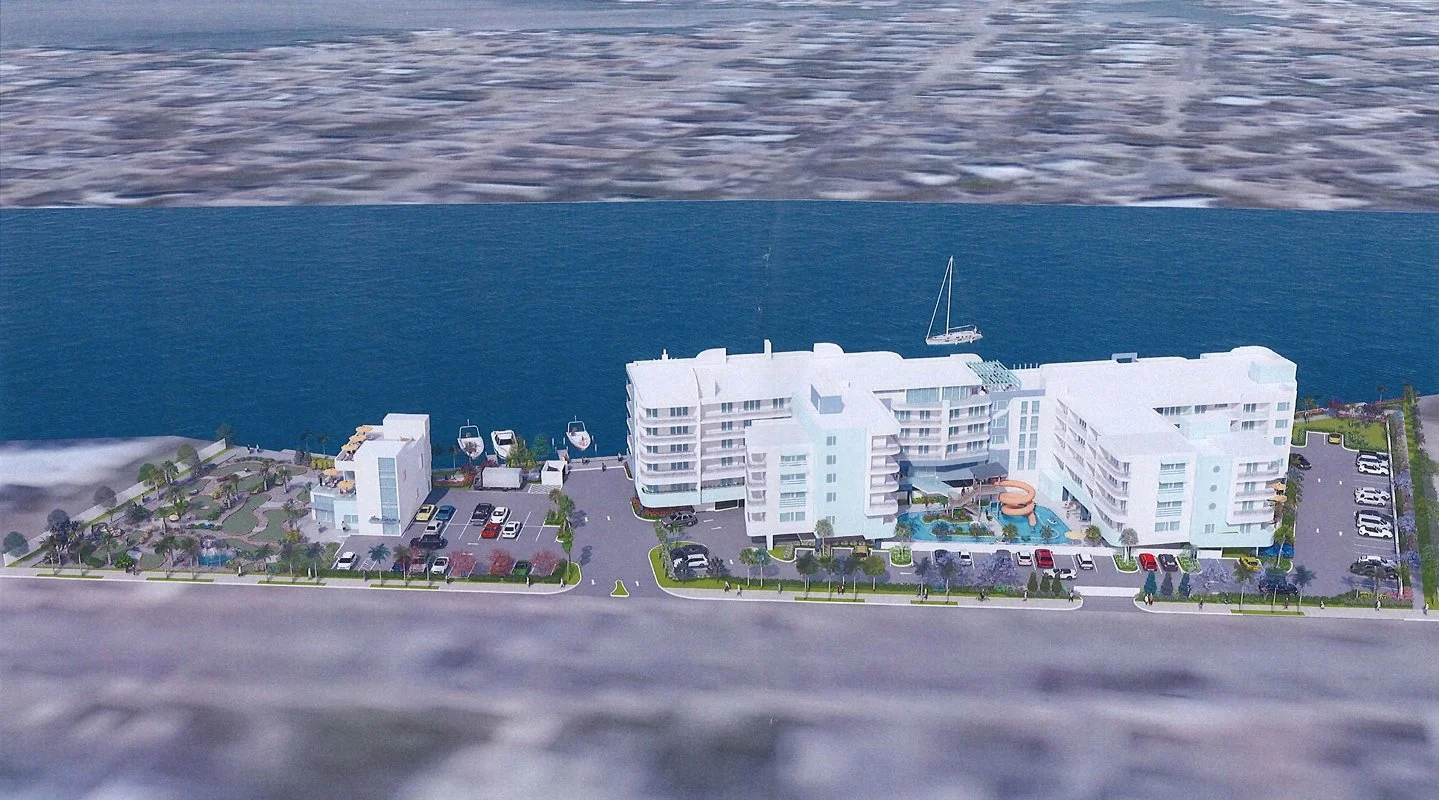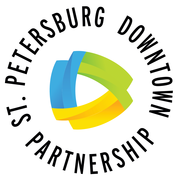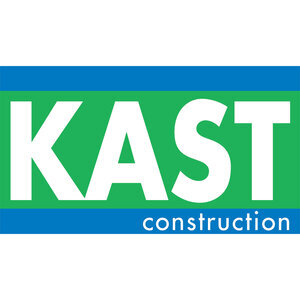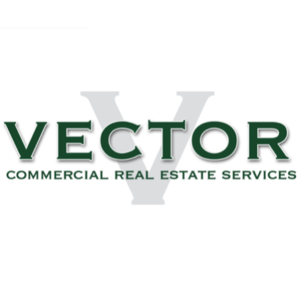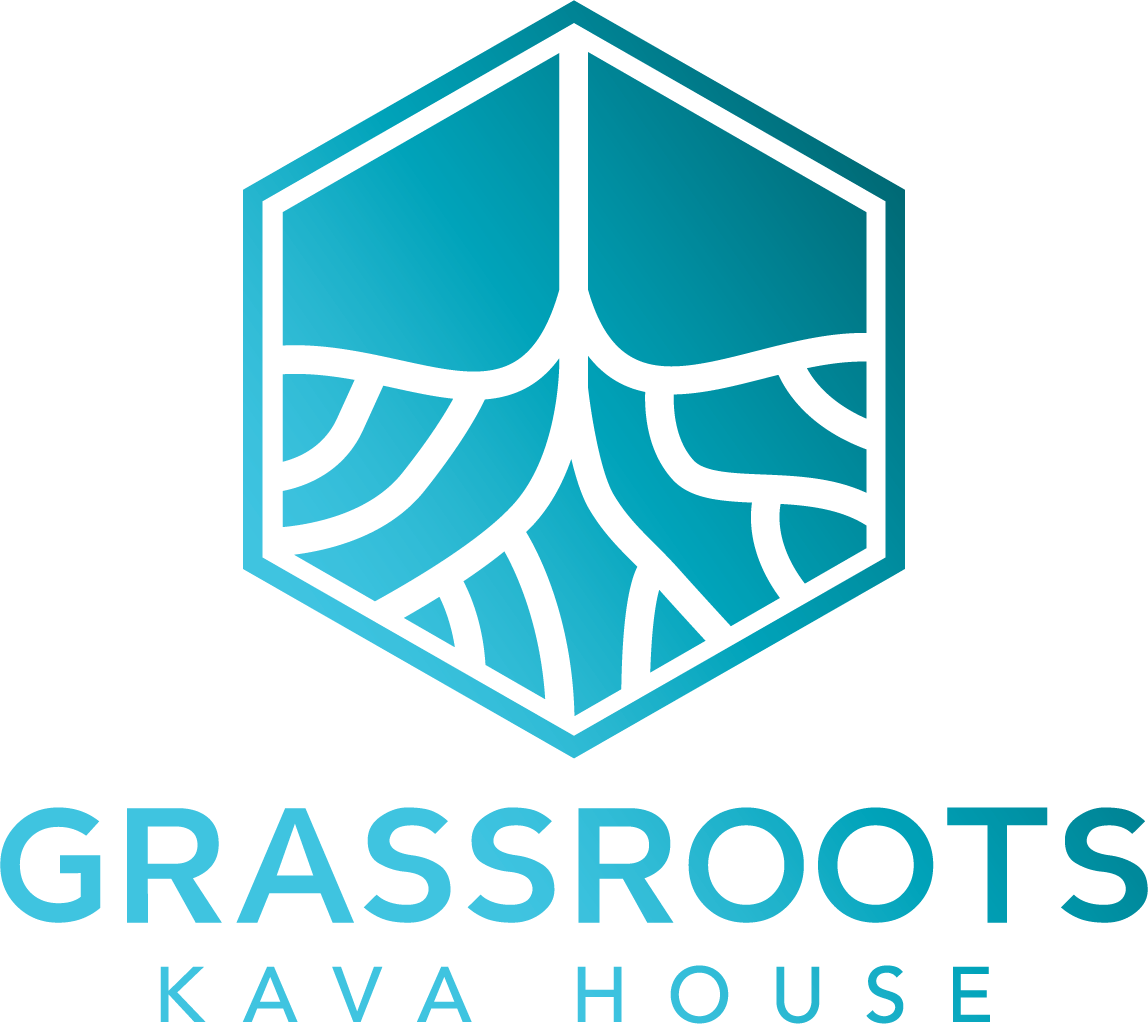Controversial apartment project with affordable housing approved for west St. Pete
/PORTER DEVELOPMENT PLANS TO CONSTRUCT OVER 1,000 APARTMENTS ON THE FORMER RAYTHEON SITE IN WEST ST. PETE | PORTER DEVELOPMENT
A massive multifamily development proposed for a 29-acre vacant parcel previously occupied by defense contractor Raytheon is moving forward after being unanimously approved by St. Petersburg City Council.
Last week, City Council hosted a public hearing to review a site plan to construct eleven four-story buildings with up to 1,058 units. The plans were filed by Azalea Porter Land LLC, an entity controlled by Porter Development, who hopes to build a garden-style multifamily development on the site.
The parcel is located at 1501 72nd Street North and fronts 22nd Avenue North. The site was purchased by Raytheon in 1995 but never fully developed because of pollution issues that led to legal action. The company embarked on a lengthy environmental cleanup process in 2008 and sold the property, which neighbors Azalea Park, to Commercial Development Company, Inc. in 2015. Porter Development purchased the property in 2021.
THE PROPOSED 29-ACRE DEVELOPMENT WILL BE CONSTRUCTED AT 1501 72ND STREET NORTH IN WEST ST. PETE
The current proposal is the second development proposed for the site. In 2021, Porter Development presented a mixed-use development including a sports complex with a lagoon pool and multifamily housing. However, the proposal required a rezoning that was unlikely to be approved at the county level and the application was ultimately withdrawn.
Since then, however, the State of Florida approved House Bill 1339, which paves the way for affordable housing projects to be developed on land previously zoned for industrial use.
In 2021, St. Pete became the first city in Florida to pass an ordinance establishing a process for H.B. 1339 to take effect. Fairfield Avenue apartments is the first project to utilize that process, allowing redevelopment of a site that otherwise would not allow housing. Palm Lake Christian Church was the second project to be approved under that process.
Porter Development’s project is the third.
Over 300 units, or 30% of the total residential units, will be set aside as income-restricted workforce housing. Half of the affordable units will be earmarked for households earning less than 80% of the Area Median Income (AMI) and the other half will be marketed to households earning less than 120% of AMI. The income-restricted units will be restricted for a minimum of 30 years.
“As a local company in Pinellas County, we are acutely aware of the challenges presented by the lack of affordable housing in our community,” says the developer on the project’s website.
“We believe increasing supply through well thought out projects is one of the most important remedies to this issue. We are excited to bring such a meaningful amount of housing to St. Petersburg and be a part of the solution to this ever-worsening housing crisis.”
An elevation of one of the eleven buildings proposed for the site. THE BUILDINGS WILL REACH A HEIGHT OF 59 FEET WITH A MAXIMUM OF FOUR STORIES | PORTER DEVELOPMENT
While the development was unanimously approved, the proposal was contentious with nearby residents opposing the project out of concern for its impact on the surrounding neighborhoods.
A neighborhood petition against the development accumulated over 1,400 signatures —700 of which were St Pete residents. A primary concern was over known contamination on the site, which stems from the parcel’s past industrial use.
Amy Foster, St. Petersburg’s Community and Neighborhood Affairs Administrator, spoke of the environmental remediation efforts that have taken place to clean up the site. “There was a Florida Department of Environmental Protection (DEP) Consent Order in March 1995 and it identified soil and groundwater contamination that indicated elevated levels of multiple industrial contaminants, including volatile organic compounds (VOCs) from Raytheon and its predecessors,” said Foster. “Remedial activities were conducted between 2008 and 2014, which included ‘pump and treat’ methods. There was also a Groundwater Recovery and Treatment System (GRTS) in near continuous operations since December 2014 south of the site.”
As a result of the remediation efforts, the site has seen declining concentrations for the contaminants of concern. Environmental monitoring of the site continues and the City of St. Petersburg added several conditions of approval to ensure Florida Department of Environmental Protection guidance on contamination and ongoing remedial action is being followed. Additionally, construction permits will only be issued once the applicant has submitted proof of all necessary DEP clearances and approvals.
Council members felt the environmental remediation efforts and confirmation of DEP clearance was sufficient to move forward. Several council members heralded the project’s contributions to the City’s affordable and workforce housing efforts.
“We are a city that must find creative ways and creative places to put housing,” said Council Chair Brandi Gabbard, in support of the development. “We do not have a choice. We are built out everywhere else. And the only option is to create developments of thousands of units that will get us closer to that need of getting people in housing, continuing to keep people in our city, and allowing them to create a life here.”
THE SITE PLAN FOR PORTER DEVELOPMENT’S NEW PROPOSAL TO BRING OVER 1,000 RESIDENTIAL UNITS TO WEST ST. PETE. 30% OF THE UNITS WILL BE SET ASIDE FOR THOSE MAKE LESS THAN 80% AND 120% OF THE AREA MEDIAN INCOME (AMI) | porter development
The first phase of the project includes 288 residential units and 7,000 square feet of amenity space along with 452 parking spaces. Phase two consists of 386 residential units with 5,400 square feet of amenity space and 658 parking spaces. The third phase is made up of 330 residential units with another 8,000 square feet of amenity space and 714 parking spaces. The apartments will include a mix of one-, two-, and three-bedroom units.
A total of 1,842 parking spaces are included in the proposal. The parking is a mix of surface-level spaces, tandem spaces, and “tuck under” spots. The development will also include 1,113 long term bicycle parking spaces and 55 short term bike parking spaces.
The development will include amenities like a community clubhouse, a playground, fitness area, three community pools, landscaped courtyards, and pedestrian connections to the Pinellas Trail.
With approval in hand, Porter Development is expected to begin the permitting process with a groundbreaking expected in 2024. First move ins are expected in 2025.
